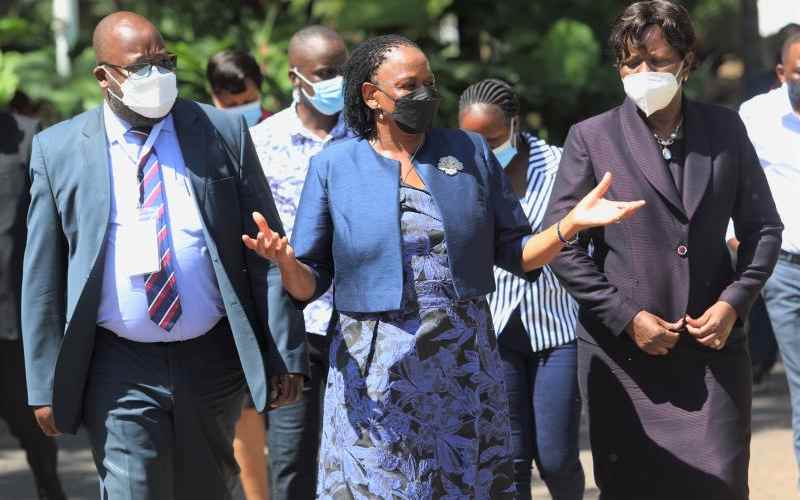×
The Standard e-Paper
Smart Minds Choose Us

Justice David Majanja, Chief Justice Martha Koome and Principal Judge Justice Lydia Achode during Judges retreat at Sarova Whitesands in Mombasa County on January 17, 2022. [Kelvin Karani, Standard]
Judges will no longer adjourn cases set for hearing, Chief Justice Martha Koome has warned.